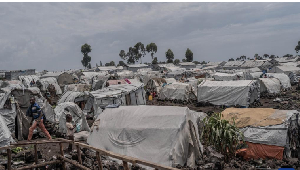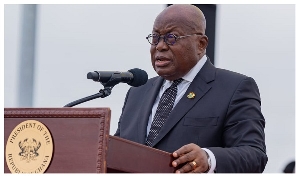Business News of Saturday, 8 November 2014
Source: starrfmonline.com
Collateralising Ghana’s oil not prudent – ACEP

The African Centre for Energy Policy (ACEP) has spoken against the penchant of using Ghana’s oil as collateral in procuring loans.
The group’s programme’s Director Ben Boakye told STARR NEWS Wednesday that continuing mortgaging the nation’s oil reserves that way bodes ill for the West African country.
He said: “It is something that we all discourage, from the onset. Even the law makes it quite stringent for anybody who would want to collateralise, but the parliamentary system we operate where majority always has its way and majority have their say is what has been the challenge for all of us.”
“…It is in everybody’s interest to make sure that we plan properly and not commit the future so much into loans by using oil revenues that’s why we structured a law to make sure that we utilise this in such a way that really generates the returns that we want,” he said.
ACEP’s concern follows revelations that the Ghana National Petroleum Company (GNPC) is procuring a $700-million loan from international lenders for oil and gas exploration purposes.
The New Statesman newspaper reported Wednesday that the loan is being procured without parliamentary approval.
A Member of Parliament’s finance committee, Kwaku Kwarten is also demanding answers from the GNPC concerning the loan being sought from the Deutsche Bank and Trafigura.
The Obuasi West MP told Asempa FM’s Ekosii sen political programme Wednesday that per Article 181 of the 1992 Constitution, the GNPC is required to necessarily have such a loan facility scrutinised and endorsed by Parliament.
Kwarten said though the GNPC is operationally and technically autonomous, it is not financially autonomous and thus cannot procure loans on Parliament’s blind side.
He hinted at the possibility of the Committee hauling the GNPC before it for explanations.
ACEP’s Ben Boakye also said: “The oil in place, the field and all the oil in it belong to the people of Ghana, held in trust by the President. No operator including GNPC can collateralise the oil in place for loan without recourse to parliament, and that is where the problem really is.”
“GNPC has no mandate to use the oil in place or our reserves as collateral for loan without parliamentary approval because the oil in place belongs to the people of Ghana and not the GNPC,” Boakye noted.










